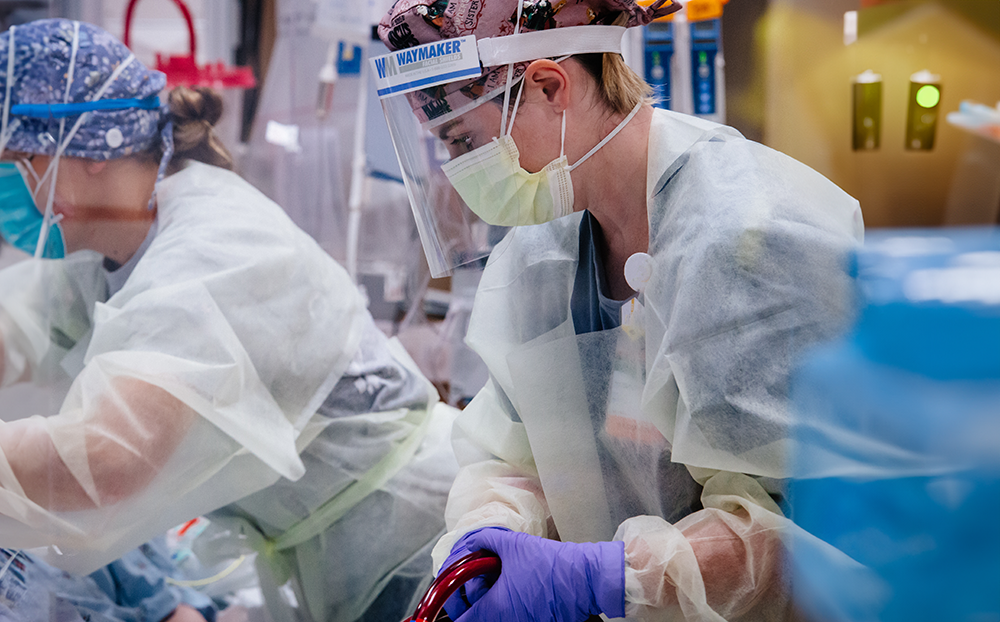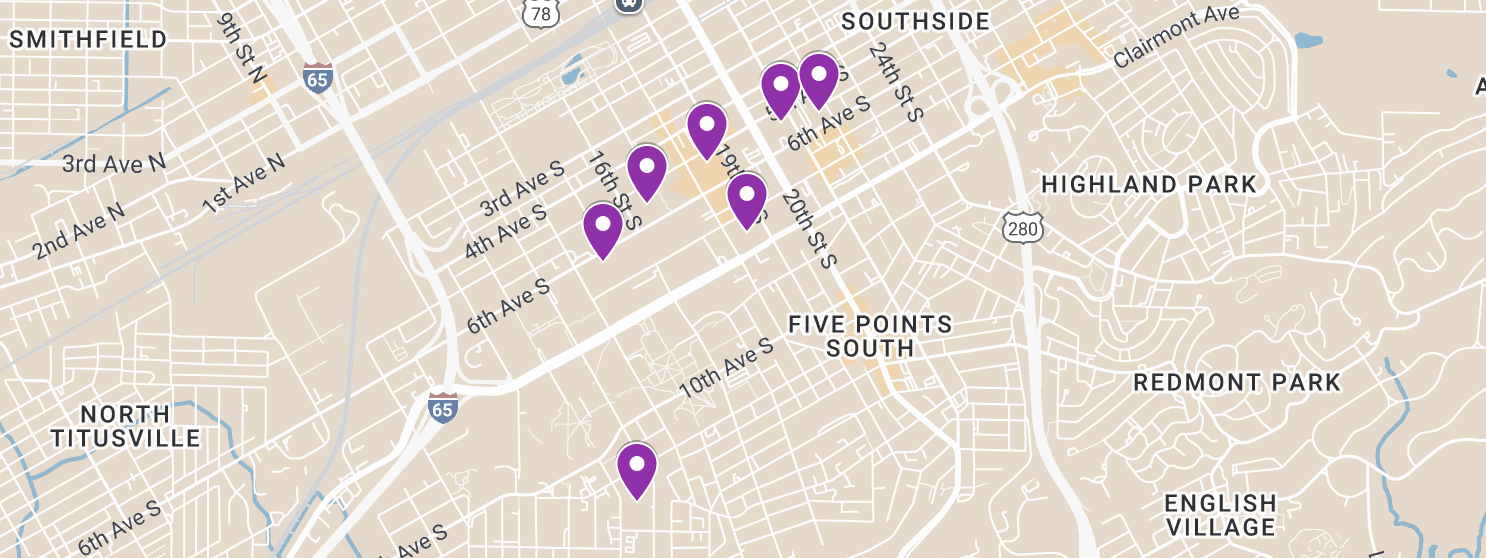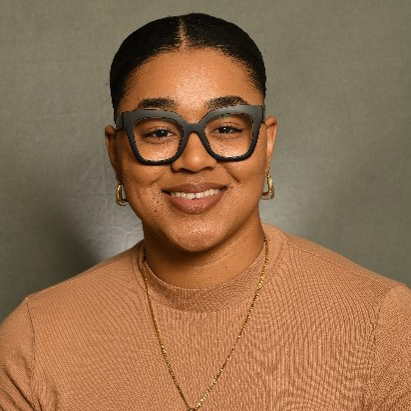In our comprehensive fellowship program, you will receive a broad range of hands-on clinical experience and individualized instruction from nationally-known physicians and investigators in a collegial environment.
Fellowship Experience
The UAB Critical Care Medicine Training Program is a unique blend of excellent clinical training and novel clinical-and-laboratory-based research opportunities in a collaborative environment. . Our goal is to provide flexibility in our training program so that fellows can be successful in a wide variety of career and practice models upon graduation. We aim to train fellows across the career spectrum including community practice, medical education, hospital administration and clinical and translational research.
We accomplish this through early and multifaceted mentorship, tailoring of research and elective time to fellows’ individual career goals, and significant support and resources for networking and developing clinical and research expertise. We welcome fellows from different training backgrounds, including emergency medicine, internal medicine, internal medicine/pediatrics and those with prior subspecialty training.
We accept applications through the Electronic Residency Application Service.
Clinical Rotations
 UAB is a highly walkable campus, making it easy to navigate your clinical rotations. Many of our clinical training sites are connected by skybridges, offering protection from rain, heat, and traffic. Browse these buildings to learn more about the types of training conducted there.
UAB is a highly walkable campus, making it easy to navigate your clinical rotations. Many of our clinical training sites are connected by skybridges, offering protection from rain, heat, and traffic. Browse these buildings to learn more about the types of training conducted there.
Explore our training sitesOpens an external link.
Our fellows have extensive training opportunities in the 1,200 bed UAB Hospital – the eighth largest public hospital in the nation. Patients come from all over the states of Alabama, Mississippi and the panhandle of Florida to take advantage of our life-changing care, offering a large population and breadth of clinical learning opportunities. We approach medicine in a multi-disciplinary modality across a broad variety of critical care medicine conditions through core and elective rotations.
Critical care fellows train in the busy University hospital ICU, cross training in surgical, cardiac and neurology ICUs, and also rotating on our Transplant, ECMO and VAservices, as well as in the UAB Highlands Hospital ICU where they experience a mixed medical surgical community ICU. The UAB Hospital is in close proximity to the Birmingham VA Medical Center, UAB Highlands campus, and Children’s Hospital of Alabama where fellows may also train. Our fellows have the opportunity to rotate on our extensive e-ICU service, gaining experience in rural critical care, as part of our Tele-ICU program.
Our medical ICU service has an average census of 45-55 patients. Our fellows are competent in all critical care procedures, including but not limited to: Airway Management, Chest Tubes, Basic Bronchoscopy, Central Venous Catheters, Arterial Access, Paracentesis, Thoracentesis, Lumbar Puncture, and Percutaneous Tracheostomy. We offer flexibility in designing electives to ensure that fellows can achieve their individualized career goals.
Unique critical care opportunities at UAB with nationally renowned expert faculty include:
- E-ICU training
- Toxicology rotations
- CRRT/Nephrology in the critical care setting
- Circulatory support devices
- POCUS training
- Tracheostomy management, including post-critical care weaning/decannulation
- Quality Improvement certifications
- Critical Care clinical trial training
Teaching Conferences
The Critical Care Medicine fellowship didactic curriculum is thoughtfully designed to maximize educational opportunities.
1) Bootcamp - This two week series in July is designed for our first year fellows, as dedicated educational time at the start of fellowship. It provides an introduction to UAB, foundational lectures and a mix of didactics, hands on and simulation sessions to teach critical care procedures including airway management, pleural procedures, vascular access and bronchoscopy skills. First year fellows are not on clinical service during Boot Camp.
2) Nuts and Bolts – The remainder of July and August have noon conferences that provide the foundation of critical care knowledge. Fellows learn the full breadth of critical care but are also encouraged to attend lectures on topics covering the basics of asthma, COPD, ILD, and pulmonary physiology in addition to those on sepsis and respiratory failure.
3) Multidisciplinary Critical Care Curriculum – We have a unique critical care focused curriculum for 2 hours a week that brings together Medical, Surgical, Anesthesia and Neurology critical care fellows from across the hospital to attend didactics by master clinicians and hands-on workshops on a variety of topics including: POCUS, tracheostomy troubleshooting, ventilator management, cardiac/Pulmonary embolism management, and neurocritical care cases. Fellows lead case based discussions, radiology conference and mortality and morbidity conferences as well as Journal clubs as part of this curriculum.
Our Critical Care Fellows are encouraged to attend:
- Pulmonary Critical Care Grand Rounds: UAB Faculty and visiting professors present on topics of clinical relevance and cutting edge research.
- Multiple multidisciplinary conferences that occur within the division and in other departments that fellows may attend if it’s relevant to their critical care career plans. These include interstitial lung disease multidisciplinary conference, neurocritical care teaching conferences, cardiology teaching conferences and anesthesia critical care teaching conferences among others.
Research Opportunities
Scholarship is an essential part of our training program. Our fellows find a mentor by the second half of their first year and then complete their projects in the second year of fellowship. These projects can include research projects (clinical, translational, basic science), implementation science, clinical series or reviews, medical education initiatives, or other forms of scholarly work. Furthermore, scholarship activities may look different for our one year critical care fellows who have already completed another subspecialty fellowship. Fellows seeking a career in clinical or translational science may be eligible for further training under our NIH-funded T-32 Training Program in Lung Biology and Translational Medicine. Our fellows have access to divisional and external biospecimen repositories as well as clinical databases to help support fellow initiated projects.
Our fellows are encouraged to attend and present their work at a national conference in their final year of fellowship. We have a conference allowance to help support this. There are also many local opportunities for fellows to present their work.
Furthermore, please review our Program in Medical ICU Research for further information on critical care research opportunities.
Applying to Our Program
Only electronic applications via the Electronic Residency Application Service (ERAS) are accepted. We do not accept any applications that are mailed, faxed, or emailed to our office.
We do NOT offer any pre-match positions.
Due to a high volume of applications, we will preferentially review applications from those who signal our program.
Let's get acquainted
It's not just what you learn. It's also about the people you learn with. Our Critical Care Medicine fellowship program leaders are dedicated to developing the potential of every talented trainee.
Meet our people
Frequently Asked Questions
-
What will I need to apply?
All applications are reviewed via Electronic Residency Application Service® (ERAS), #1007142F0. The following documents are required:
-
Current CV (updated within 3 months)
-
Medical School Transcripts (and diploma if requested)
-
Medical School Dean’s Letter
-
Three (3) total Letters of Recommendation (including former program directors)
-
Certificate/verification from previous residency training
-
Must be eligible for Alabama Medical License and Alabama Controlled Substance Certificate (all step scores completed at the time of application)
-
Must be eligible for Federal DEA registration
-
Valid ECFMG Certificate (IMG only)
-
-
Are there work requirements to train at the VA?
UAB fellowship programs are fortunate to partner with the Birmingham Veterans Affairs Health Care System as a part of our training experience.
Am I Eligible Checklist: Please ensure that you meet the eligibility requirements for training at the VA by accessing the “Am I Eligible Checklist.” Failure to be able to rotate at a major teaching location will, in most cases, result in a revocation of an offer to train, termination, or non-renewal of your GME Agreement.
Selective Service Registration: VA policy states that any male U.S. citizen who did not register for selective service before age 26 is not eligible to work at a VA, no exceptions. You can register for selective service or verify that you have already registered for selective service online with the U.S. Selective Service System.
-
What are the current vaccination requirements?
Vaccinations are required based on CDC recommendations for Health Care Workers including routine childhood vaccines, Hepatitis-B, COVID-19 and Influenza, except in the case of an approved exemption.
-
Is there a minimum USMLE score required?
There is no minimum USMLE score requirement. We take the score into account as part of the overall review of an application.
-
What are the key program dates for Applications?
Applications Open and Close — Please see ERAS calendar for dates
Applications Reviewed — July, must be available by August 1
Interview Invitations Released — Early to mid August
Interviews Begin — Late August and continue through October
Match Day — Please see ERAS calendar
Fellowship begins — July 1st every year
-
Do you sponsor H1B or J1 Visas?
Yes, the division can sponsor these Visas.
-
What is the cost of living in Birmingham?
Birmingham offers a vibrant urban lifestyle at a cost that’s approximately 9% below the national average. Trainees enjoy access to thriving neighborhoods, a nationally recognized food scene, and a dynamic creative community.
Want to learn more? Start a conversation with us.
 I'm always ready to discuss our individualized approach to training future clinicians and researchers in the practice of critical care medicine. Please reach out to me for any details about our fellowship program and applying.
I'm always ready to discuss our individualized approach to training future clinicians and researchers in the practice of critical care medicine. Please reach out to me for any details about our fellowship program and applying.
Micah Whitson, M.D., Critical Care Medicine Fellowship Program Director
Send an Email
 I’d be thrilled to discuss our critical care training and the cross training opportunities at UAB.
I’d be thrilled to discuss our critical care training and the cross training opportunities at UAB.
Aneesah Jaumally, M.D., Critical Care Medicine Fellowship Associate Program Director
Send an Email
 I'd be delighted to talk with you about the many exciting possibilities that await you at UAB and Birmingham. Contact me for more details about your fellowship.
I'd be delighted to talk with you about the many exciting possibilities that await you at UAB and Birmingham. Contact me for more details about your fellowship.
Brittney Snow, M.S., Fellowship Program Administrator
Send an Email
 Please reach out for more details about your fellowship.
Please reach out for more details about your fellowship.
Kayla Boglin, Fellowship Program Coordinator
Send an Email